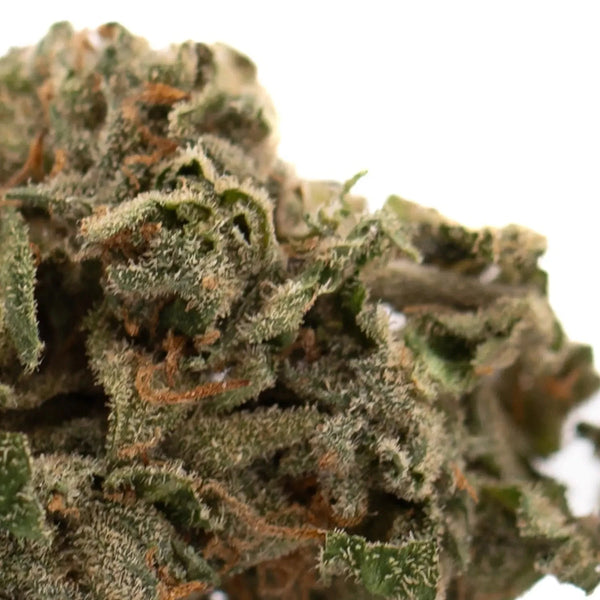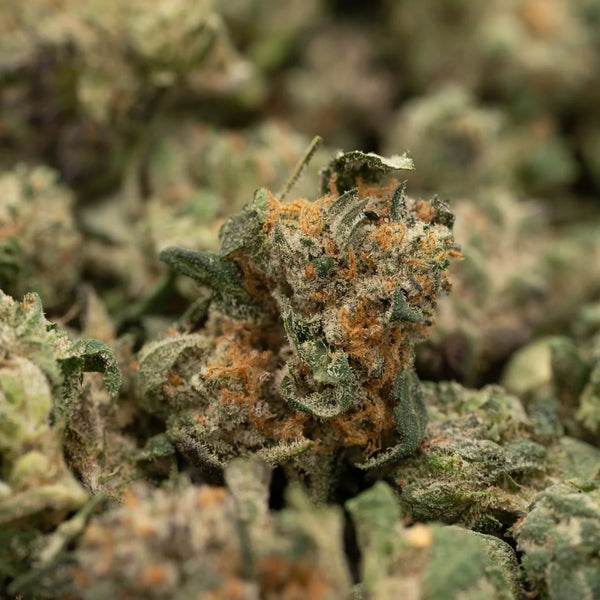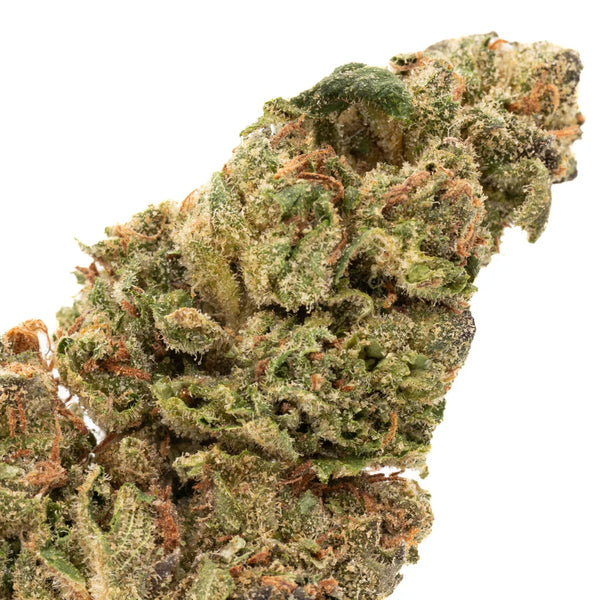No Products in the Cart
GET 25% OFF YOUR FIRST ORDER | GREENHOUSE THCA FLOWER 7g - $26.24 $34.99

The hemp industry is experiencing a seismic shift as THCA (tetrahydrocannabinolic acid) emerges as one of the most talked-about cannabinoids in the market. From discussions on thca wholesale reddit forums to the rapid expansion of thca distributors nationwide, this non-intoxicating precursor to THC is reshaping the landscape of hemp commerce.
What makes THCA particularly fascinating is its unique position in both the legal and therapeutic landscapes. Unlike its decarboxylated cousin THC, THCA doesn't produce intoxicating effects in its raw form, yet it offers a compelling array of potential wellness benefits that consumers are increasingly seeking. This distinction has created a perfect storm of market opportunity, consumer interest, and regulatory complexity that will define the hemp industry for years to come.
The numbers tell a compelling story. Conservative industry estimates suggest the THCA market could reach $2-3 billion by 2028, representing a compound annual growth rate (CAGR) exceeding 40%. This explosive growth isn't happening in traditional channels alone—grassroots communities, online marketplaces, and innovative distribution models are rewriting the playbook for how hemp products reach consumers.
The wholesale thca products sector has experienced explosive growth over the past 18 months, fundamentally transforming how the hemp industry operates. What was once a cottage industry dominated by small-scale producers has evolved into a sophisticated supply chain with institutional players, advanced cultivation techniques, and professional distribution networks.
Industry data reveals remarkable expansion metrics. Many hemp wholesale operations are reporting 200-300% year-over-year growth in their THCA divisions, with some distributors completely pivoting their business models to focus exclusively on this cannabinoid. The competition for thca deals has intensified dramatically, driving innovation across every aspect of the value chain—from cultivation and processing to packaging and distribution.
The wholesale landscape is characterized by several key trends:
Vertical Integration: Forward-thinking operators are controlling multiple stages of production, from seed to sale. This approach provides quality assurance, cost advantages, and supply chain resilience that pure-play distributors cannot match.
Regional Specialization: Certain cultivation regions are emerging as THCA powerhouses. The Pacific Northwest, for instance, has become synonymous with high-quality outdoor flower, while controlled environment operations in the Southwest are producing consistent, year-round premium product.
Price Dynamics: Wholesale pricing has been volatile, reflecting the immature nature of the market. Early 2024 saw prices as high as $1,200-1,500 per pound for premium THCA flower. By mid-2025, increased supply pushed prices to $400-800 per pound, with further compression expected as cultivation expands.
The digital transformation of THCA commerce cannot be overstated. The rise of thca flower online deals has democratized access for both retailers and consumers, fundamentally disrupting traditional distribution channels that relied heavily on in-person trade shows and regional distributor networks.
Direct-to-consumer models are gaining significant traction. Consumers increasingly prefer the convenience, selection, and often superior pricing available through online channels. Meanwhile, thca products wholesale platforms are creating new efficiencies in B2B transactions, reducing friction, improving transparency, and enabling smaller retailers to access products that were previously available only to large-volume buyers.
The online evolution has several important dimensions:
Marketplace Platforms: Aggregator websites are emerging that connect multiple suppliers with buyers, creating price transparency and competitive dynamics previously absent in the fragmented market.
Educational Content: Successful online retailers are investing heavily in content marketing, recognizing that THCA consumers need education about cannabinoid science, consumption methods, and product selection.
Community Building: Perhaps surprisingly, online forums like bulk thca flower reddit have become crucial market infrastructure. These communities function as information exchanges, quality control mechanisms, and trend indicators that savvy operators monitor closely.
Recent market research provides valuable context for understanding THCA's trajectory:
THCA occupies a fascinating and precarious position in the regulatory landscape. As a non-intoxicating compound found in raw hemp, it technically falls under the 2018 Farm Bill's definition of legal hemp—provided the plant material contains less than 0.3% delta-9 THC by dry weight. However, this seemingly straightforward classification conceals significant complexity and state-level variation.
The fundamental regulatory challenge centers on testing methodology and timing. THCA converts to THC when heated (a process called decarboxylation), but the 2018 Farm Bill's testing standards don't clearly address whether THCA should be included in THC calculations. This ambiguity has created the current market opportunity but also poses risks for operators and investors.
State-Level Divergence: The regulatory patchwork varies dramatically:
Prediction: Expect meaningful federal regulatory clarity within the next 18-24 months. The DEA, FDA, and USDA are under increasing pressure from industry stakeholders, consumer advocates, and legislators to address hemp-derived cannabinoids explicitly.
This regulatory evolution will likely manifest in several ways:
Clear Testing Protocols: Federal agencies will probably implement standardized testing methodologies that address THCA content explicitly. The most likely scenario involves "total THC" testing that calculates potential THC by including THCA, using a formula like: Total THC = (THCA × 0.877) + Delta-9 THC.
Interstate Commerce Guidelines: Current ambiguity around interstate commerce will be resolved, either by permitting free movement of compliant hemp products or by establishing a registration/licensing system for distributors.
Quality and Safety Standards: Expect mandatory testing for contaminants (heavy metals, pesticides, microbials) and potency, similar to state-regulated cannabis markets. This will increase operational costs but also professionalize the industry.
Age Verification Requirements: Given THCA's relationship to THC, federal authorities will likely impose 21+ age restrictions for purchase, along with required ID verification for online and retail transactions.
While some thca distributors fear restrictive regulations could constrain the market, most industry leaders believe clear rules will ultimately benefit the sector by:
Today's THCA consumers represent a fundamental shift in hemp market demographics and psychographics. They're increasingly sophisticated, educated, and intentional in their purchasing decisions:
Health-Conscious Consumers: The primary THCA demographic is actively seeking raw cannabinoids for their potential anti-inflammatory, neuroprotective, and antiemetic properties. These consumers typically:
Experience-Focused Users: A growing segment is interested in the entourage effect—the synergistic interaction between cannabinoids, terpenes, and other plant compounds. These consumers seek:
Quality-Driven Buyers: Perhaps most significantly, THCA consumers demonstrate remarkable price inelasticity when quality is verified. They demand:
The THCA market's most exciting aspect may be its demographic reach beyond typical cannabis users:
Wellness Enthusiasts (35-55 age range): This educated, affluent demographic represents the largest growth segment. They're typically:
Athletes and Active Individuals: Sports recovery has emerged as a killer application for THCA:
Seniors Exploring Alternative Therapies: The 65+ demographic is adopting THCA at surprising rates:
Professionals Seeking Non-Intoxicating Options: White-collar workers who want wellness benefits without impairment:

The current fragmented THCA market will undergo significant consolidation over the next 12-18 months. This natural maturation process will be characterized by:
Merger and Acquisition Activity: Major hemp wholesale operators will acquire smaller thca distributors to gain market share, geographic coverage, or specialized capabilities. Expect acquisition multiples of 3-5x EBITDA for profitable operators with strong brands.
National Retail Chain Entry: Major convenience store chains, pharmacy retailers, and health food stores will test THCA products in select markets. Companies like GNC, Vitamin Shoppe, and regional grocery chains represent likely early movers.
Quality Differentiation: As supply increases and prices compress, quality standards will become the primary differentiator. Operators investing in:
Price Stabilization: The current volatility in thca deals will moderate as the market matures. Expect wholesale flower prices to settle in the $300-600 per pound range for quality product, with premium craft flower commanding $800-1,200 per pound.
Wholesale thca products will diversify significantly beyond flower, following a trajectory similar to early CBD market evolution:
Water-Soluble THCA Formulations: Nano-encapsulation technology will enable:
Advanced Delivery Systems:
THCA-Infused Functional Beverages: This category could become the largest revenue generator:
Targeted Topical Applications:
Standardized Dosage Formats:
THCA will transition from niche wellness product to mainstream commodity:
Traditional Retail Distribution: Expect thca products wholesale in:
Healthcare Integration:
Investment and Infrastructure:
International Markets:
For investors evaluating the thca products wholesale space, several categories present compelling opportunities:
Strong Investment Bets:
Vertically Integrated Operations: Companies controlling cultivation, processing, and retail distribution offer:
Technology Platforms: Software and platforms streamlining distribution create network effects:
Testing and Compliance Infrastructure: Companies providing essential laboratory and regulatory services will benefit regardless of market volatility:
Consumer Brands and Education: Direct-to-consumer brands with strong positioning will capture premium margins:
Regulatory Arbitrage Players: Operations dependent on continued regulatory ambiguity face existential risk when clarity arrives. Avoid companies that:
Undercapitalized Cultivation: Growing THCA requires significant capital for:
Single-State Operators: Geographic concentration creates risk:
Sophisticated investors are increasingly monitoring communities like bulk thca flower reddit and thca wholesale reddit forums as leading indicators of market trends.
These grassroots communities often signal:
Emerging Consumer Preferences: Reddit discussions frequently surface trending:
Supply Chain Intelligence: Community members often report:
Quality Control: The community functions as a distributed quality assurance network:
Real-World Pricing: Unlike published wholesale price lists, Reddit discussions reveal actual transaction prices, discounts, and deal structures occurring in the market.
Investment Implication: Smart operators and investors allocate resources to monitoring, and sometimes participating in, these communities. They provide ground-level market intelligence unavailable through traditional research channels.
Diversify Your Supply Chain: Don't depend on a single source. Develop relationships with multiple thca distributors to ensure product availability even if one supplier faces production issues, regulatory challenges, or quality problems.
Invest in Staff Education: Your team is your competitive advantage. Knowledgeable budtenders and sales staff who can educate customers about:
Competitive Pricing Intelligence: Monitor thca flower online deals to ensure your pricing remains competitive. However, avoid racing to the bottom—compete on value, service, and education rather than price alone.
Build Strategic Inventory: Before regulatory changes potentially disrupt supply chains:
Prepare for Regulatory Changes:
Prioritize Compliance Infrastructure: The cost of building robust compliance systems now is far less than the cost of retrofitting later or facing regulatory penalties:
Develop Direct-to-Consumer Capabilities: Relying exclusively on wholesale channels limits growth potential:
Brand Building Beyond Flower: Commodity flower will face ongoing margin pressure. Build premium brands that command higher prices through:
Consider Vertical Integration: Evaluate opportunities to control more of the value chain:
Research Hemp Wholesale Suppliers: If purchasing in bulk, thoroughly vet suppliers:
Compare THCA Deals Thoughtfully: While price matters, prioritize quality:
Support Transparent Suppliers: Vote with your dollars by supporting companies that:
Stay Informed: Regulations and best practices evolve quickly:

Currently, THCA derived from hemp (containing less than 0.3% delta-9 THC) exists in a legal gray area under the 2018 Farm Bill. It's not explicitly illegal at the federal level, but regulatory clarity is expected within 18-24 months. State laws vary significantly, so always verify local regulations.
Most industry experts believe THCA will remain legal in some form, likely with additional regulations around testing, labeling, and distribution. The most probable scenario involves "total THC" testing standards and age restrictions similar to tobacco or alcohol.
Increased regulation typically raises operational costs, which could increase retail prices by 15-30%. However, regulatory clarity should also expand the market and attract investment, potentially creating economies of scale that stabilize or even reduce prices long-term.
Wholesale purchasing offers lower per-unit costs but typically requires larger minimum orders, business licenses, and sometimes resale permits. Retail purchasing provides convenience, smaller quantities, and consumer protections but at higher per-unit costs.
This depends on your risk tolerance and storage capabilities. While some operators are building inventory buffers, THCA's stability requires proper storage (cool, dark, dry conditions). Most experts recommend maintaining 3-6 months of inventory rather than extreme stockpiling.
Always request current Certificates of Analysis (COA) from accredited ISO-certified laboratories. COAs should test for cannabinoid potency, terpene profiles, pesticides, heavy metals, residual solvents, and microbials. Cross-reference COA batch numbers with product packaging.
Expect significant innovation in beverages (functional drinks, coffee/tea), advanced topicals, pharmaceutical-style tablets, nano-emulsified formulations, and time-release formats. The flower-dominant market will diversify dramatically.
Reddit communities can provide valuable real-world insights about pricing, supplier reputation, and product quality. However, always verify claims independently, cross-reference with multiple sources, and recognize that experiences vary. Use Reddit as one data point among many.
THCA occupies a unique middle ground—more potent than CBD but less intoxicating than delta-8 THC. As consumer education improves, each cannabinoid will find its market niche based on desired effects, legal considerations, and personal preferences.
Most operators should expect 3-5 year timelines to profitability and scale. The market is maturing rapidly, but meaningful returns require patience, adequate capitalization, and adaptability to regulatory changes. Quick-flip opportunities are increasingly rare as the market professionalizes.
The THCA market stands at a pivotal inflection point. While regulatory uncertainty persists and challenges remain, the fundamental indicators suggest a robust, sustainable future for this cannabinoid. Consumer demand continues accelerating, cultivation techniques are improving rapidly, and the industry is maturing from its frontier phase into professional commerce.
The next 24 months will be decisive for operators, investors, and consumers alike. Businesses that prioritize compliance, quality, and consumer education will be positioned to thrive regardless of regulatory developments. Those chasing short-term thca deals at the expense of long-term sustainability may find themselves on the wrong side of market evolution.
For investors and industry professionals, the strategic imperative is clear: THCA isn't a passing trend or regulatory loophole to exploit—it represents a fundamental shift in how consumers engage with hemp-derived wellness products. The market opportunity is substantial, but success will require strategic thinking, operational excellence, adaptability to change, and commitment to responsible growth.
The winners in this emerging market will be operators who:
For consumers, the expanding THCA market offers unprecedented access to a unique cannabinoid with compelling wellness applications. As the industry matures, product quality will improve, prices will stabilize, and innovation will deliver new formats that make THCA more accessible and effective.
Industry Insight: Stay connected with communities discussing wholesale thca products, monitor regulatory developments closely, and build relationships with multiple trusted suppliers. The hemp industry moves with remarkable speed, and those who stay informed, adaptable, and committed to quality will have decisive competitive advantages in the dynamic market ahead.
The future of THCA is bright, but the path forward requires wisdom, patience, and preparation. Whether you're an operator building a business, an investor evaluating opportunities, or a consumer exploring this cannabinoid, now is the time to position yourself thoughtfully for the transformative changes ahead.
About This Article: This comprehensive analysis combines industry research, market data, expert interviews, and community insights to provide the most complete picture of THCA's future trajectory. For the latest deals and highest-quality thca products wholesale, visit trusted suppliers who prioritize testing, transparency, and customer education.